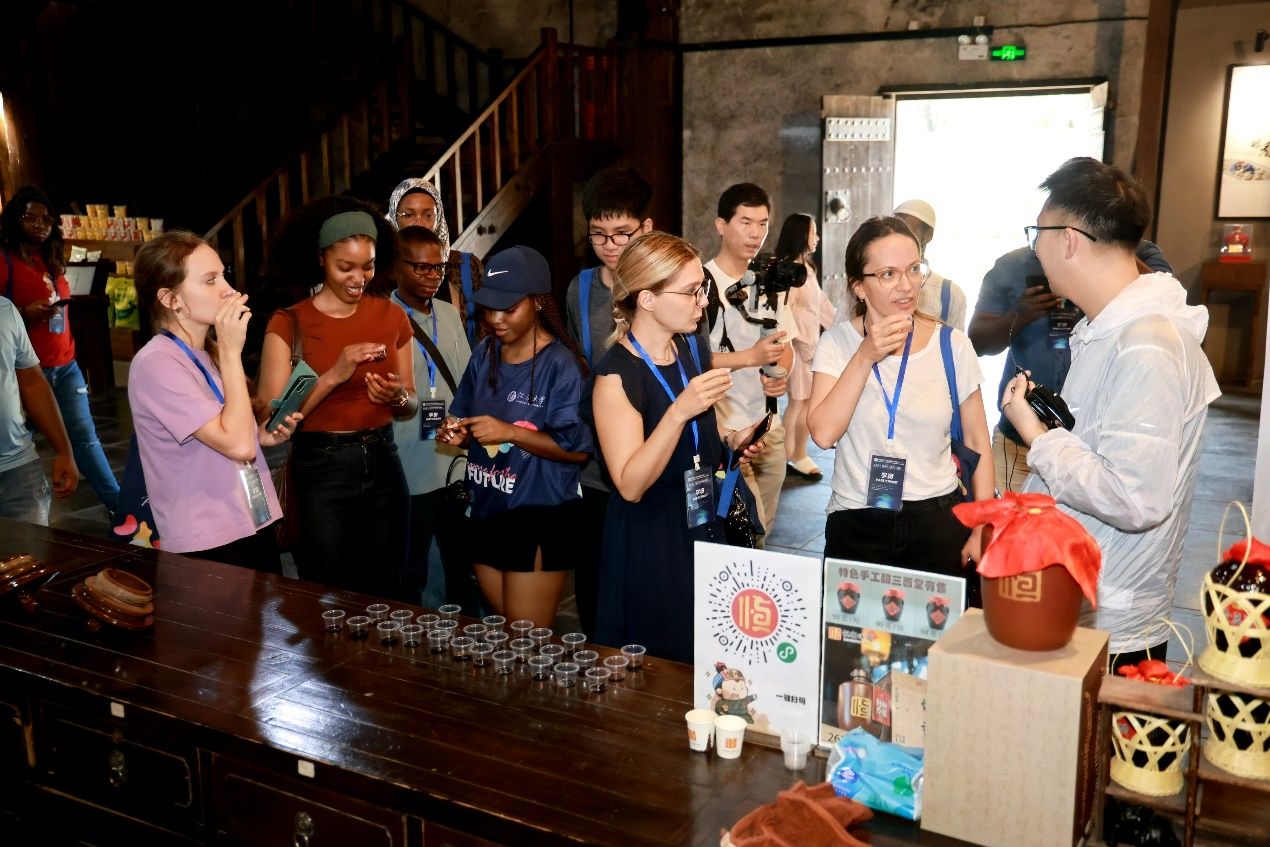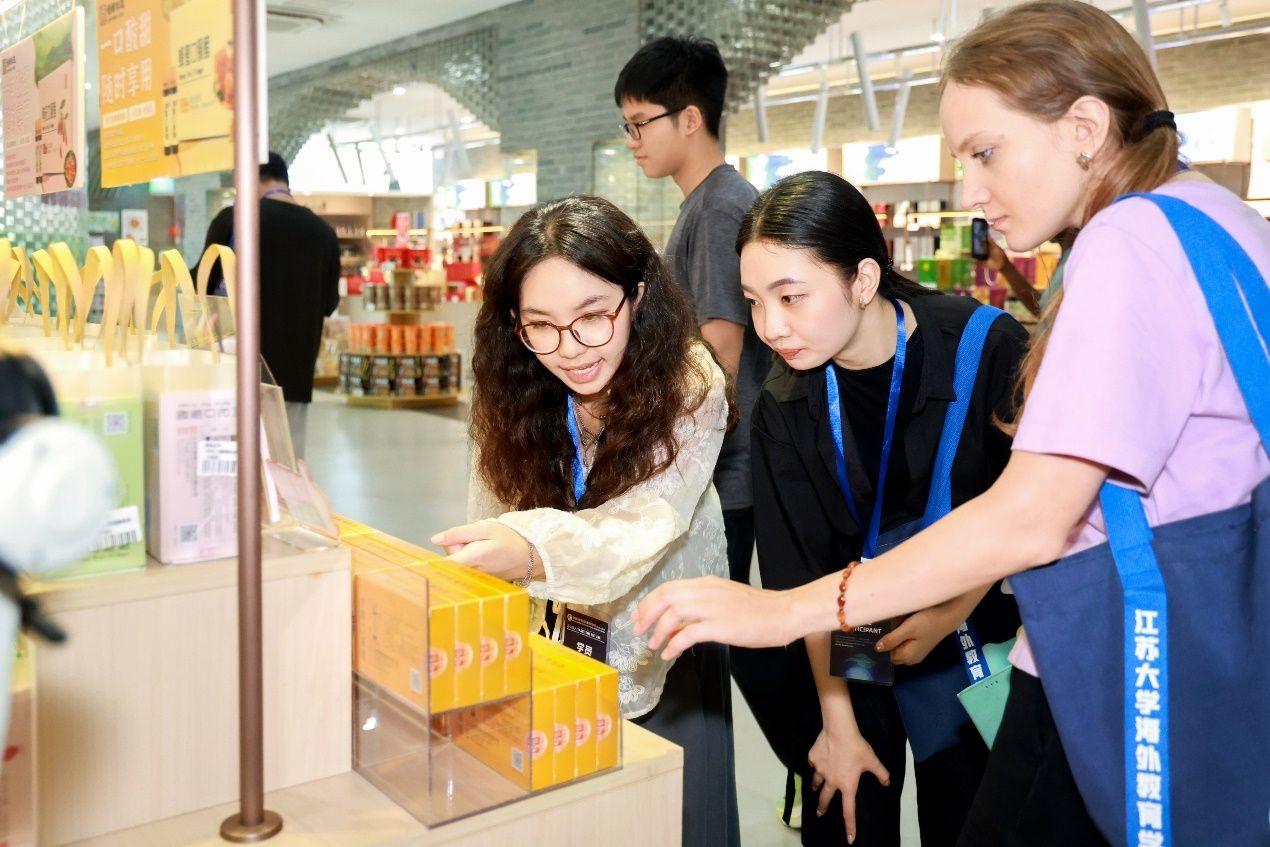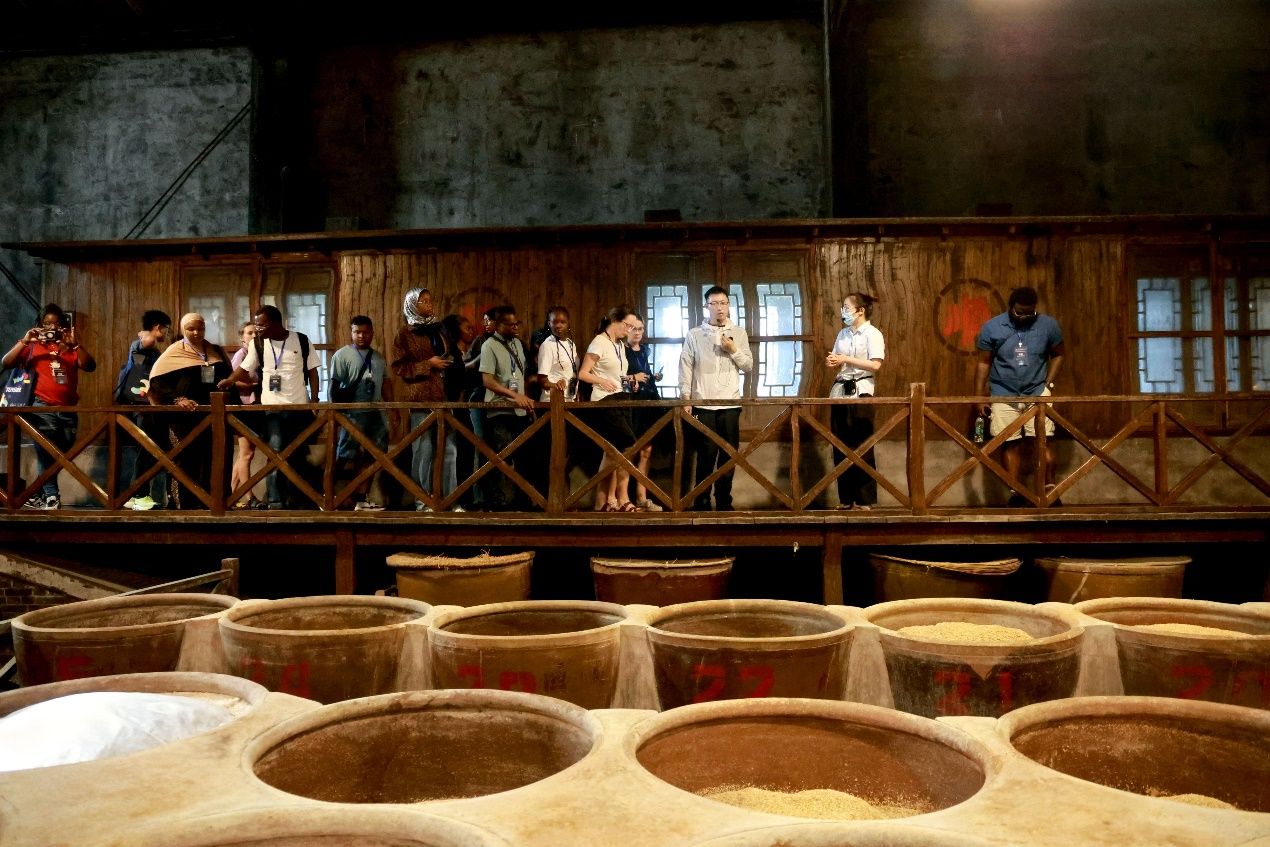To deepen international graduate students’ understanding of traditional Chinese food culture and enhance the integration of practical teaching with industrial innovation, the School of Food and Biological Engineering organized a field visit to the Hengshun Group Research and Development Center and the Zhenjiang Vinegar Culture Museum on August 20. The visit offered students a close-up look at the unique charm of traditional fermentation techniques and the vitality of modern food technology in China.
At the Hengshun Group Research and Development Center, the students were guided through the experimental laboratories, product exhibition area, and intelligent production monitoring platform. The company’s researchers introduced the latest progress in the development of traditional condiments such as vinegar, soy sauce, and rice wine. The visit also showcased Hengshun’s innovation in heritage preservation of traditional brewing techniques, intelligent transformation of fermentation processes, and development of functional condiments. The international students showed great enthusiasm during the tour, actively asking questions about fermentation control, flavor optimization, and product innovation. Many expressed admiration for how Hengshun integrates traditional craftsmanship with modern food science and technology.

Following the Research and Development Center visit, the group toured the Zhenjiang Vinegar Culture Museum. With the guidance of museum staff, the students gained a systematic understanding of the history, production process, and cultural significance of Zhenjiang vinegar—a renowned representative of China’s traditional condiments. Through exhibitions of brewing tools, historical archives, and interactive demonstrations, they experienced the deep cultural heritage and meticulous craftsmanship behind the thousand-year-old “vinegar aroma.” A graduate student from Vietnam commented, “This visit helped me not only see the advanced technologies in food processing, but also understand the deep respect Chinese people have for traditional flavors and quality.”

During the activity, the international students also engaged in discussions with the R&D staff of Hengshun Group on topics such as fermentation technology, flavor regulation, and product innovation. The exchanges extended to broader issues including differences between Eastern and Western food industries, the global development of traditional fermented foods, and opportunities for future research collaboration.The visit provided the students with valuable insights into the current landscape and innovation trends of China’s food industry. It also allowed them to witness firsthand the integration of traditional techniques with cutting-edge technologies, reinforcing their appreciation of China’s scientific achievements in food engineering. This activity not only broadened the international students’ academic and cultural perspectives but also served as a bridge for cross-cultural communication and knowledge sharing.

The School of Food and Biological Engineering remains committed to fostering an open and internationalized education system. By combining classroom learning with enterprise-based practice, the school helps international students better understand China’s food industry, innovation pathways, and development models. Looking ahead, the school will continue to strengthen partnerships with leading enterprises, enrich practical teaching experiences, and further advance the cultivation of globally competent professionals in food science and engineering. (School of Food and Biological Engineering)

